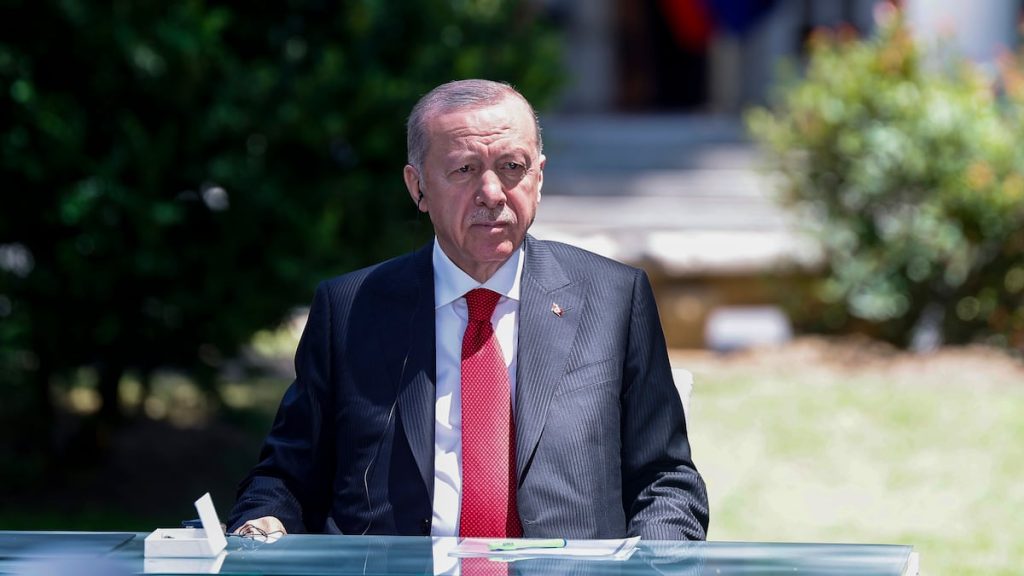President Erdogan of Turkey became very upset when the Spanish press asked him a question about human rights during a joint press conference with Pedro Sanchez following a high-level meeting between ministers of both countries in La Moncloa. Despite this, both presidents showed strong political alignment on the wars in Gaza and Ukraine, with Erdogan particularly praising Sanchez for recognizing Palestine and calling him a “world leader”. Sanchez also confirmed that Spanish Patriot missiles defending Turkey as part of a NATO operation would remain in the country, which Erdogan appreciated. However, Erdogan became agitated when asked about Turkey’s systematic non-compliance with European Court of Human Rights rulings, particularly regarding the release of Selahattin Demirtaş and Osman Kavala.
In December 2019, the European Court of Human Rights ruled that Osman Kavala, a businessman and philanthropist accused by Turkish authorities of orchestrating protests in Gezi Park in 2013, should be immediately released as the accusations lacked sufficient evidence. A year later, the court also found that the rights of Selahattin Demirtaş, former leader of the main Kurdish party in Turkey, had been violated by an overly broad interpretation of terrorism offenses. Despite these rulings, Erdogan declared that the decisions of the European court did not apply to Turkey, accusing them of supporting terrorism. Ankara’s refusal to comply with the court’s decisions led the Council of Europe to initiate infringement proceedings against Turkey.
Since a constitutional reform in 2017 increased the president’s powers and appointment of judges, concerns have been raised about the judiciary’s independence in Turkey. The opposition and human rights organizations have criticized the courts for aligning more closely with the government’s wishes. The conflict between different branches of the judiciary came to a head when a Supreme Court panel filed a complaint against the Constitutional Court for ordering the release of lawyer Can Atalay, convicted in relation to the Gezi Park protests. Erdogan criticized the ruling, leading the trial court to refuse to comply with the Constitutional Court.
The issue of human rights violations in Turkey, especially the government’s disregard for international court rulings, has been a point of contention within the Council of Europe. Turkey’s reluctance to comply with European Court of Human Rights decisions has led to increased scrutiny and criticism from international bodies. Erdogan’s strong influence over the judiciary in Turkey, coupled with his dismissal of international rulings, has raised concerns about the state of democracy and rule of law in the country. The clash between the principles of human rights and national sovereignty continues to be a significant challenge in Turkey’s relationship with the international community.














